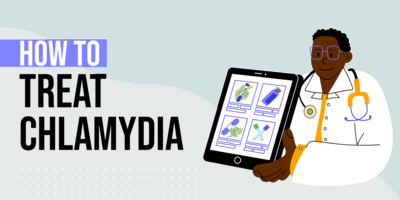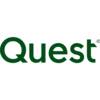
How to Treat Chlamydia
Chlamydia is a bacterial infection that is spread by sexual contact, according to the CDC. It is one of the most...
Read moreHelp patients book appointments with you on Solv. It's free!
2 instant-book locations

No more surprise bills. Solv is committed to making getting healthcare as easy as buying groceries at the store, including knowing the price of care upfront.
Help patients book appointments with you on Solv. It's free!
In the United States, more than a million people are infected with HIV. It is possible to have HIV and be completely unaware of it. In fact, nearly a third of HIV-positive patients are completely unaware of their infection. If you have HIV and are unaware of it, you run the danger of infecting others. If you test positive, you will be able to take precautions to prevent the illness from spreading. HIV affects certain groups of people more than others, such as racial minorities and gay males. In addition, HIV is more prevalent in the South.
Although there is no cure for HIV, it can be controlled with medication that slows the virus's growth in the body. To be successful, the drug must be used on a daily basis. HIV can cause serious consequences if left untreated, so it's critical to get tested and treated if you think you're at risk. HIV damages the immune system, making you more vulnerable to other infections, including life-threatening conditions like cancer.
If you have had unprotected sex with a new partner, had several sexual partners, have had sexual contact with an infected partner, or have used intravenous drugs, you should get tested for HIV. Sharing needles with an HIV-positive person is one of the most common ways to contract the virus. While the CDC recommends that everyone get tested for HIV at least once, not everyone who is sexually active has to be tested on a regular basis. You should get tested at least once a year if you have a higher risk of contracting HIV. Sexually active homosexual and bisexual men are more likely to contract HIV and should be tested every 3-6 months. Testing for HIV is simple, painless, and often free.
At least once in their lives, everyone between the ages of 13 and 64 should have an HIV test. Some persons are at a higher risk of contracting HIV and should be tested more frequently. Sexually active homosexual males, those who have had sex with an HIV-positive partner, those who inject drugs, and those who have unprotected sex are all included. If you have any of these risk factors, you should get tested every 6-12 months.
Antibodies created by your body in reaction to the infection are tested for in HIV tests. A blood test or a sample of cells obtained from the inside of the cheek can be used to do this. The sample is then delivered to a Montana laboratory, where it is examined for the presence of antibodies by a technician.
It can take a long time for your body to build enough antibodies for an HIV test to detect the illness if you become sick. It may take 3-12 weeks for your blood to contain adequate antibodies. Even if you have HIV, you could have a negative test result during this time.
Most HIV test results can take anywhere from a few days to several weeks because the sample must be sent to a Montana laboratory for analysis. Some clinics or doctor's offices in Montana, on the other hand, may offer quick HIV testing, which can provide a diagnosis in as little as 20 minutes. A little sample of blood or fluid taken from the mouth is used in rapid HIV tests. If a quick test yields a positive result, you'll need a follow-up blood test to confirm the diagnosis.
The cost of an HIV test is determined by a number of factors, including the type of test you receive, the location where you are tested, and whether or not you have health insurance. Some Montana clinics or health authorities may provide HIV tests for free or at a minimal cost. If you're a college student, your institution might be able to provide you with free HIV tests.
HIV testing is covered by the majority of insurance policies. Most new insurance plans are required by the Affordable Care Act to include HIV testing without a cost for anybody aged 15 to 65. You may always call your insurance carrier or visit their website if you have questions about what is covered under your individual health plan.
HIV testing is provided at many Montana health clinics, doctor's offices, and the health department. In addition, some pharmacies with on-site clinics may be able to provide HIV testing. Even though some clinics allow walk-in appointments, scheduling ahead of time will save you time and ensure that you get your test the same day.
Yes, same-day and next-day HIV testing sessions are available through Solv. We work with thousands of healthcare providers across the country to make it simple for everyone to get the medical help they need swiftly and easily. Find a physician near you on our website and book an appointment right away.
Simply type “HIV test” and your area into the search box on our website. On the following page, you'll find a list of providers along with their available appointment times. Choose a time and location that is convenient for you, then fill out the form to schedule your appointment. Make sure that the reason for your appointment is "HIV testing."
Although certain home HIV tests are available, not all are reliable or FDA-approved. You'll need to take a swab from the inside of your mouth or a blood sample with a finger pricker for a home test. If a home HIV test yields a positive result, you should see a doctor to confirm the diagnosis and begin treatment.

Updated on Apr 25, 2024
Solv has strict sourcing guidelines and relies on peer-reviewed studies, academic research institutions, and medical associations. We avoid using tertiary references.
Annual Wellness Exam in Montana
Chickenpox Vaccine in Montana
DOT Exam in Montana
Ear Wax Removal in Montana
Eye Exam in Montana
Flu Shot in Montana
Hepatitis Vaccine in Montana
Measles Vaccine (MMR) in Montana
Pap Smear in Montana
Physical Exam in Montana
Shingles Vaccine in Montana
Sinus Infection Treatment in Montana
Sports Physicals in Montana
Tetanus Shot in Montana
Typhoid Vaccine in Montana
Well-Woman Exam in Montana
Yellow Fever Vaccine in Montana
A1C Test in Montana
CMP Test in Montana
Chlamydia Test in Montana
Diabetes Test in Montana
Gonorrhea test in Montana
H Pylori Test in Montana
HIV Test in Montana
Hepatitis test in Montana
Herpes Test in Montana
Mono Test in Montana
Pregnancy Test in Montana
STD Testing in Montana
Strep Test in Montana
Syphilis test in Montana
TB Test in Montana
Thyroid Test in Montana
Trichomonas Test in Montana
Vitamin D Test in Montana
Tips, advice, news—your resource to stay healthy and safe while improving your experience with healthcare providers when you need them.